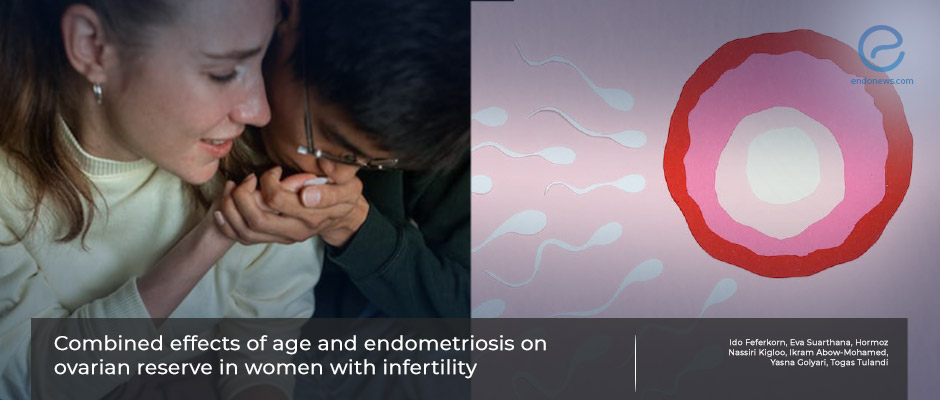Endometriosis, Age, and Ovarian Reserve
Jan 26, 2023
Endometriosis negatively affects ovarian reserve and this effect gets worse with age.
Key Points
Highlights:
- The negative effect of endometriosis on the ovarian reserve is worsened with age.
Importance:
- Although the previous studies suggest a detrimental effect of endometriosis on ovarian function; a comparison of young with older age groups is missing.
What's done here:
- Researchers conducted a cross-sectional study where they analyzed a total of 656 women.
- The combined effects of age and endometriosis on ovarian reserve in women with infertility were assessed retrospectively.
Key results:
- The median anti-Müllerian hormone (AMH) levels and antral follicular count of women with endometriosis are significantly lower than that of women without the disease.
- The association between lower AMH levels and endometriosis is significant in women older than age 35.
Limitations:
- Not all women underwent surgery and there may be some women with asymptomatic endometriosis in the control group.
- There was no data available about the stage of endometriosis stage, the size of the endometrioma, and the extent of surgery so risk factors could not be classified.
- There was no data available about the live birth rate and cumulative live birth rate.
- The number of patients with endometriomas younger than age 35 was relatively small.
Lay Summary
The effect of endometriosis on ovarian reserve can be enhanced with older age, according to a new study published in the International Journal of Gynecology & Obstetrics.
This finding is important because it can help clinicians guide their patients in the right manner and help women with the disease make more informed choices.
In order to evaluate the combined effects of age and endometriosis on ovarian reserve in infertile women, a team of researchers led by Dr. Togas Tulandi from the Division of Reproductive Endocrinology and Infertility, and the Faculty of Medicine at McGill University Health Care Center, in Montreal, Quebec, Canada conducted a cross-sectional study.
The team analyzed a total of 656 women. The study group consisted of 71 women with endometriosis whose disease was confirmed based on sonographic, laparoscopic, or histologic evidence. The rest of the women were in the control group.
The researchers found that the median anti-Müllerian hormone (AMH) levels of women with endometriosis were significantly lower at 1.2 ng/mL compared to that of women without the disease, who had a median level of 2.1 ng/mL.
Similarly, the antral follicular count value of women with endometriosis was significantly lower than that of women without the disease (7 follicles versus 14 follicles).
When the researchers divided the women into 2 groups based on their age, i.e. those younger than 35 and those older than 35 at the time of ovarian reserve testing, they found that even though the association between a lower antral follicular count and endometriosis was significant for both age groups, the association between a lower AMH and endometriosis was significant only for women older than age 35.
“Our study highlights a detrimental effect by endometriosis and an age enhancement effect of endometriosis on ovarian reserve” the authors concluded.
Ovarian reserve is the number and quality of eggs that a woman has and defines her fertility potential.
Research Source: https://pubmed.ncbi.nlm.nih.gov/36263878/
ovarian reserve fertility anti-Müllerian hormone antral follicular count

